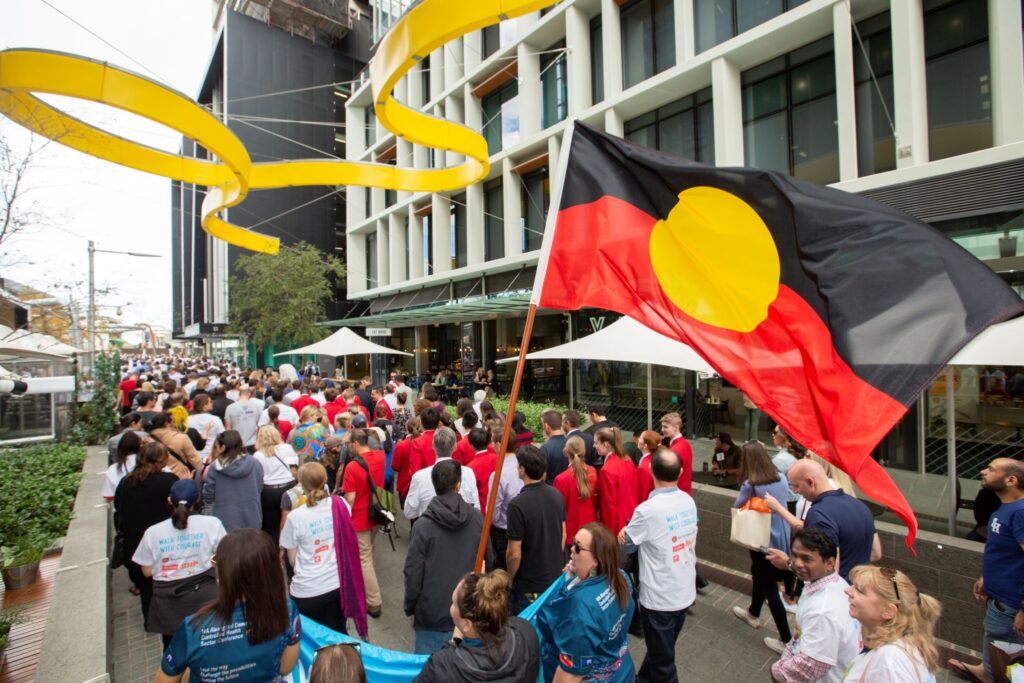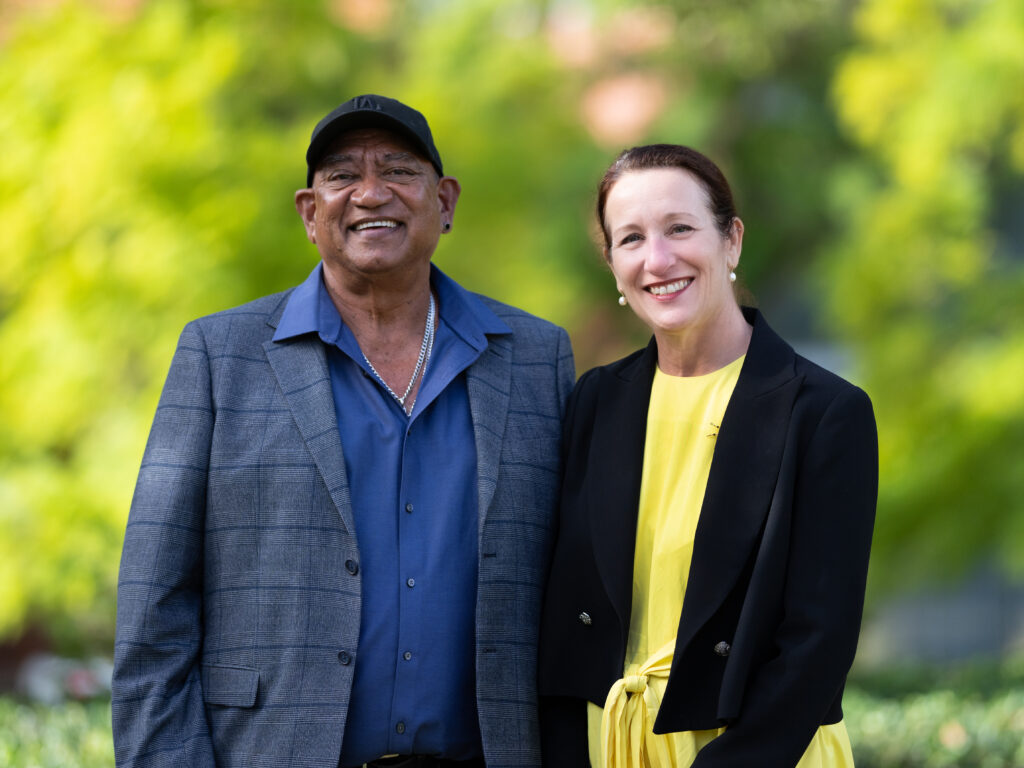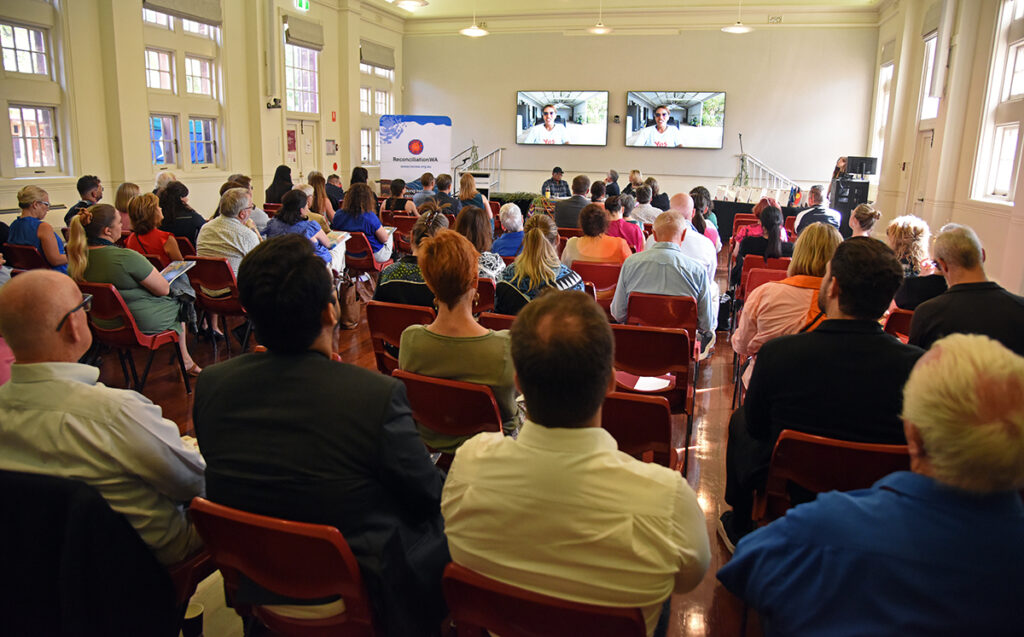Jody Nunn
9/10/2023
Australia has been travelling a long journey towards reconciliation and it will continue. A journey illuminated by moments that have demonstrated our national commitment to healing and unity, and revealed our shared identity. We find ourselves at Australia’s next decision, a fork in the road where we must decide on the vision of our nation.
The upcoming referendum on the Voice to Parliament represents a profound opportunity—a chance to create a more united and equitable future for our nation.
The reconciliation movement began formally in 1991. The process was set in motion by a recommendation from the Royal Commission into Aboriginal Deaths in Custody – an inquiry that served as a rallying cry for a national conversation on the treatment of Aboriginal and Torres Strait Islander people within our justice system, reverberating with the echoes of justice denied and voices silenced.
And so was born the Council for Aboriginal Reconciliation (CAR), whose intention was to ‘achieve reconciliation’ by 2001, ten years’ time from its inception. When CAR’s final reports were delivered in 2000, it was clear a decade of formal reconciliation was not substantial enough to address more than 200 years of oppression. Yet support among Australians for reconciliation was strong. Thousands of First Nation Australians and even more of their Non-Aboriginal allies walked united across the iconic Sydney Harbour Bridge in 2000. Across the country many other bridge walks followed. This powerful procession was a vivid brushstroke on the canvas of our nation’s reconciliation history.
We have borne witness to other moments of unity since then. The National Apology in 2008, delivered by Prime Minister Kevin Rudd, demonstrated our nation’s growing maturity. Millions of Australians observed this acknowledgment of the pain suffered by the Stolen Generations at the hands of previous governments.
Rudd’s words went beyond political rhetoric; they expressed genuine remorse and empathy. He acknowledged the trauma inflicted by past policies of the forced removal of First Nation children from their families. The apology not only prompted a profound reflection on Australia’s treatment of First Nation Peoples—it revealed Australia’s ability to confront its past, admit its errors, and commit to a fairer and more inclusive future.
The Voice to Parliament creates a renewed opportunity to recognise that reconciliation is not just about acknowledging the past but actively working to create a future where all Australians, regardless of their background, can thrive. It is perhaps the most significant and long-awaited leap forward in Australia’s reconciliation journey. At its core, it is a proposal that seeks to establish a First Nations Voice to the Australian Government, ensuring that their perspectives must always be heard, as the Parliament actively considers the formation of policies and legislation regarding Aboriginal and Torres Strait islander peoples.
It acknowledges the need to move beyond symbolic gestures and take practical action towards meaningful change. By implementing a First Nation Voice, we help bridge the gap between the wider Australian population and the knowledge and wisdom held by Aboriginal and Torres Strait Islander Peoples. Have we not yet learned from the lessons in our past and indeed, the lessons of others?
Regions with Indigenous people like Canada, Scandinavia and New Zealand, have similar mechanisms and have showcased the transformative potential of such approaches. They’ve seen more inclusive policies, better recognition of Indigenous rights, and Indigenous culture celebrated and valued across their nations. We have the opportunity to walk a similar path, one that respects the ancient and thriving wisdom, culture and knowledge of Aboriginal and Torres Strait Islanders Peoples.
We have all heard the misconceptions about the Voice to Parliament. If passed, it is clear that the implementation of the Voice will be in the hands of many future governments who will no doubt work within a spectrum of conservative and progressive positions. We cannot foresee this activity, but we are fortunate to live in a democratic society that is afforded the opportunity to create new governments that must honour the will of Australian people.
Now is a time to focus our attention to the principles which underpin the Voice – those of fairness, inclusivity, and transparency and to respond to the unique invitation from First Nation Australians for a pathway forward, through the Uluru Statement From The Heart. We must not forget the generosity of this invitation and the integrity of the process in its formation. It is an invitation from the heart of First Australians, creating a moment to come together, not to divide.
In the week ahead, I hope that everyone prioritises informed decision-making and engages in a thoughtful and respectful dialogue about the future of our country.
I ask you to deeply consider the significance of this referendum. No matter the outcome, the reconciliation movement will continue. However, what it looks like, the momentum in which we venture forward together, and the priority future governments place on it, weighs on this decision. It truly is a nation building moment.
Within each of us lies the power to propel our collective reconciliation journey forward, a journey marked by determination, commitment, and resilience. It’s your opportunity to say to our government, “I stand for justice, and a more inclusive future for all Australians.”
Do you envision an Australia where First Nation voices are both heard and truly valued in our nation? This is the question we must ask ourselves. On October 14th, your answer will shape that vision for Australia.
—
Learn more about the Voice to Parliament.


